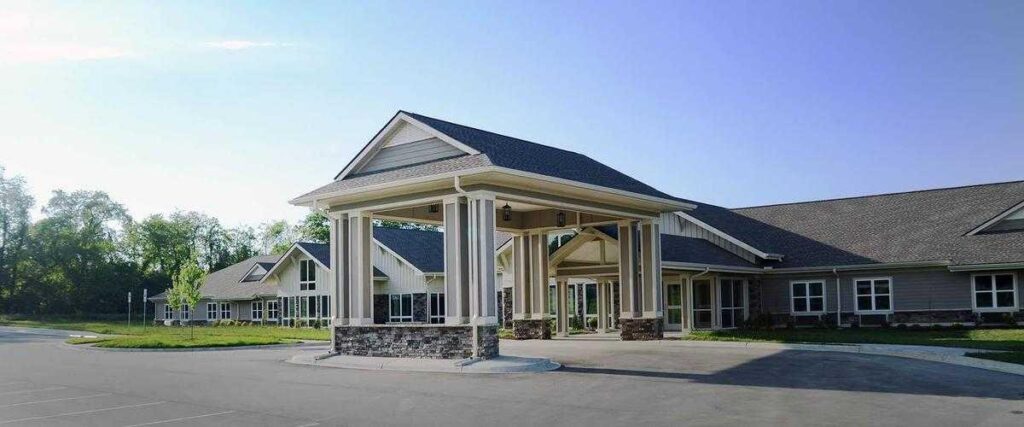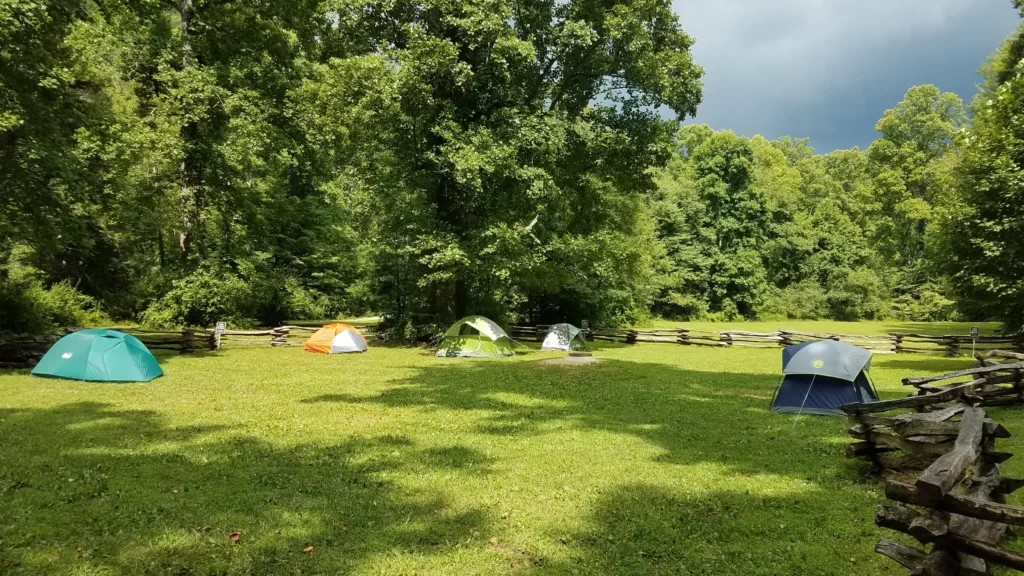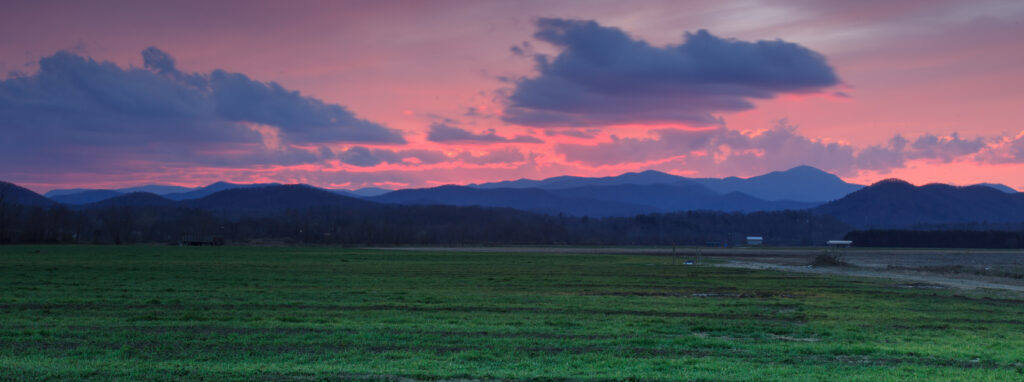HOA Management in Mills River, NC
William Douglas Management is a leader in customer service — the experience and expertise that your association needs and deserves!
The Town of Mills River, N.C.
The Town of Mills River is a municipality in Henderson County, North Carolina. Mills River was incorporated as a town in 2003. Mills River is located in the mountainous western region of North Carolina, just east of Pisgah National Forest. Mills River has a moderate year-round climate. The Town of Mills River is not to be confused with the river with the same name that flows nearby.
Per the 2020 United States Census, Mills River’s population was calculated to be 7,078. This was a 3.89% growth rate since the 2010 United States Census.
Mills River’s first Census was the 2010 United States Census. The population in this Census was calculated at 6,802.
As of 2012, per the United States Census, Mills River had 753 total businesses or firms within the town limits.
Location/Coordinates of Mills River per Google Earth – Latitude: 35°23′18.48″N, Longitude: 82°34′00.44″ W
Mills River’s Elevation is 2,080 feet
Mills River is the 109th largest municipality in the state of North Carolina.
As of 2019, per the United States Census, the median value of an owner-occupied housing unit was $257,800.
The land area of Mills River per the 2010 United States Census was 22.39 square miles.
Mills River’s population per square mile was 303.8 per the 2010 United States Census.
As of 2019, per the United States Census Bureau, there are 3,072 households within the town limits of Mills River.
As of 2019, per the United States Census Bureau, there were 2.36 persons per household within the town limits of Mills River.
Per the United States Census Bureau, 93.7% of Mills River’s population who are 25 years of age or older are high school graduates.
Per the United States Census Bureau, 39.4% of Mills River’s population who are 25 years of age or older hold a bachelor’s degree or have obtained a higher level of education.
The Actual River – “Mills River”
For Clarification: The actual river, “Mills River,” flows through Transylvania and Henderson counties, North Carolina. Mills River is a tributary of the French Broad River. It originates in the Pisgah National Forest at the confluence of the North Fork and South Fork. The North Fork is feed water from the slopes just south of the Blue Ridge Parkway between Asheville and Mount Pisgah. The South Fork’s water originates from the Pisgah Ranger District, just east of the Cradle of Forestry in America, which includes the slopes of Black Mountain. The Mills River is the municipal water source for both Asheville and Hendersonville. Mills River ends and flows into the French Broad River northwest of Hendersonville between NC Highway 191 and Interstate 26.
The Town of Mills River
While the Town of Mills River was only incorporated in 2003, the area has been settled for quite some time. A post office has been in operation in what would become the Town of Mills River since 1838. Mills River is considered one of the oldest settlements in Henderson County. Reportedly, the first landholder received a deed from the State of North Carolina in 1787.

The early settlers to the future Mills River area were farmers. The geographic features of the future town, the “bottomland,” made it ideal for farming. The flat land, an abundance of water, and rich soil made farming a prosperous endeavor. The rich soil was developing through the millenniums of the river’s depositing rich minerals into the soil from the natural water flow and the seasonal flooding.
One of the major tributaries of the Tennessee River is the French Broad River, and it flows through the northeastern part of the town. A tributary of the French Broad River is the Mills River, and it flows from west to east through the center of town. In the southern part of town flows Boylston Creek, another smaller tributary of the French Broad River.
As with the early settlers, agriculture has remained the prominent economic base for the community up through today. Farming and horticulture are still the primary employment sources for the community. Development slowly began moving towards Mills River in the late 1990s and early 2000s.
In the early 2000s, there were concerns of forced annexation by the neighboring town of Fletcher. This concern of forced annexation led to the residents of Mills River seeking incorporation in 2003. At this point in time in North Carolina and up until 2006, forced annexation was exceptionally common within North Carolina. Simply, forced annexation was an annexation by which a municipality unilaterally forced residents of unincorporated areas to live in their municipality. These newly annexed residents were immediately subject to their new municipality’s property tax rates. What upset many newly annexed residents the most is that they did not receive any additional benefit from their new municipality that they were not already receiving. For example, if the resident was under county fire department coverage, they simply were transferred to that municipality’s fire department’s coverage. In certain circumstances, if the resident was under county law enforcement coverage, such as a sheriff’s department, there were instances where the municipality contracted with the sheriff’s department to continue the same law enforcement coverage as before. In essence, the annexed resident was now paying double the property taxes for the exact same services. To quote the John Locke Foundation, “Only a handful of states are considered forced-annexation states, and North Carolina is extreme even among those states.”
However, in 2006, forced annexation in North Carolina came to an abrupt halt with a ruling from the North Carolina Supreme Court. The case that brought forced annexation to a halt was Nolan v. City of Marvin. The findings of the court: “The primary purpose of involuntary annexation, as regulated by these statutes, is to promote ‘sound urban development’ through the organized extension of municipal services to fringe geographical areas. These services must provide a meaningful benefit to newly annexed property owners and residents, who are now municipal taxpayers, and must also be extended in a non-discriminatory fashion. Under that definition, forced annexation in N.C. is not achieving its primary purpose. Forced annexation is not used for sound urban development. Municipalities are simply ignoring the areas that need services and annexing those areas that do not need services.”
Before this ruling, the concern of forced annexation drove many unincorporated communities to incorporate in avoid this possible fate. A large number of small unincorporated communities around large municipalities in North Carolina were incorporated in the late 1990s and early 2000s because of these concerns.
There was a great deal of anticipation of development and population growth with the incorporation of Mills River in 2003. In 2005 they were predicting a population of 10,542 by 2025. That would be around an additional 1,500 households within the town limits. One of the big hurdles to growth is infrastructure, such as municipal water and sewer services. The property tax rate in Mills River is exceptionally low at $0.08 per $100 of assessed valuation. The Town of Mills River collects taxes for Mills River Fire and Rescue at an additional $0.11 per $100 of valuation. From the Mills River town website: “A low tax rate and minimal government is a goal Council strives to maintain.”

While Mills River has no central town center, it does have Highway 191 which has been steadily developing over the past twenty years. Development has come in the form of more retail operations. The Ingles shopping center and other development along Boylston Highway have bolstered the economy.
The Town of Mills River provides fire protection services through an agreement with Mills River Fire and Rescue. Law enforcement services are provided through agreement with the Henderson County Sheriff’s Department. The Town of Mills River has the Mills River Park with a dog park, picnic shelter, playground, tennis courts, handicap-accessible fishing pier, and a 1.2-mile multi-use trail. There is a canoe/kayak launch at the park onto the Mills River. The main park facility is located at 124 Town Center Drive.
Mills River an Overview
Mills River is located near the Pisgah National Forest, Interstate 26, and the Asheville Regional Airport. The main transportation arteries are Highways 280 and Highways 191, which give easy access to Asheville, Hendersonville, and Brevard. Mills River is 22 square miles in area and has a population of 7,708. The development of horticulture, sod cultivation, and horse farms are transforming the landscape of Mills River.
Things to Do in Mills River
1) Tiffany Hill Can Make Your Vision Come True.
You might not want to leave the Tiffany Hill Bed & Breakfast once you’ve arrived! This custom-built bed and breakfast were the first in the South to be included in the Southern Living Hotel Collection. Tiffany Hill is your perfect Mills River Homebase, brimming with timeless elegance and Southern friendliness. Choose it if you want a romantic retreat or a luxury starting point for a weekend of adventure in Mills River. More than six acres of the land have been created for leisure and rejuvenation, showing that at Tiffany Hill, dreams do come true.
2) Mills River Restaurant Serves Home-Cooked Meals.
Mills River’s main thoroughfares are Highways 280 and 191. Mills River Restaurant is located at the crossroads of these highways, in the center of the village. This family restaurant is open seven days a week for breakfast, lunch, and supper. From burgers and steaks to fried seafood platters, American cuisine dominates the evening menu. However, real Greek and Italian dishes are also offered. Remember to leave space for dessert! The Mills River Creamery, located next door, makes its own ice cream using farm-fresh milk, locally grown fruits, and the finest spices.
3) Check Out What’s On Tap At Mills River Brewing
There’s no requirement to go far for a drink. The Mills River Brewing Company is only a few blocks away! The brewery, founded in 2015 in a strip mall in Arden, needed a couple of years to appropriately develop into its spanking new 8,600-square-foot brewing plant and taproom in its namesake town. Their big opening occurred on January 11, 2020, and they are currently offering their distinctive Southern IPAs and Appalachian Ales five days a week. Is beer not your cup of tea? Bold Rock Hard Cider has a station nearby. The biggest individually owned cidery in the United States offers free weekend tours from their cidery, as well as pints, flights, and snacks.
4) At The Wagon Wheel, Rock Me!
If you love looking at antiques, plan a visit to Wagon Wheel Antiques over your weekend in Mills River. This family-owned “home away from home” business is located across the street from High Vista Golf Community, adjacent to Southern Farmhouse Pottery and Decor. Their goods range from homeware to home décor and cover three decades of old-time selections. It’s a fun way to spend an afternoon—and maybe even find a gem or two!

5) Explore Pisgah National Forest By Horseback.
Outdoor activities abound in almost every direction in and around Mills River! Near the Pisgah National Forest’s entrance, the Mills River Recreational Area is a popular gathering spot for hiking, fishing, and mountain climbing. However, if you want to explore the forest with nice neighbors, book a ride with Saddle-Up Trail Rides. This family-run horseback riding guide business has unique permission to transport riders into the national forest. Their trails are also appropriate for riders of all ability levels. From atop a calm horse, take in the pure mountain air and magnificent landscape.
Whether a company is looking for a factory site or a family is looking for a home in a small-town setting, Mills River is a great place to consider. To begin with, the small-town atmosphere buffeted by the Great Smoky Mountains. Finding a great home begins with finding a great neighborhood. A great neighborhood can begin with a well-operated homeowners association.
The role of an HOA management company is to strive to improve the property values of the homes within the homeowner’s association. An HOA management company is charged with managing the HOA’s day-to-day operations while balancing the interests and needs of the membership. These duties are usually more than individual HOA board members can or want to do on their own.
Need Association Management?
Contact Us
How to Start
The Process of Working With Us


REQUEST A PROPOSAL
Request a proposal online or call us directly.


WE WILL REVIEW YOUR CASE
Our team of highly trained professionals will review your case.


RECEIVE A CUSTOM TAILORED PLAN
We will create a customized management plan for your community.


SEAMLESS TRANSITION
We will implement a seamless management transition and integrate our tech.


SIT BACK & RELAX
Enjoy better, affordable and a more reliable, hassle-free management system.




